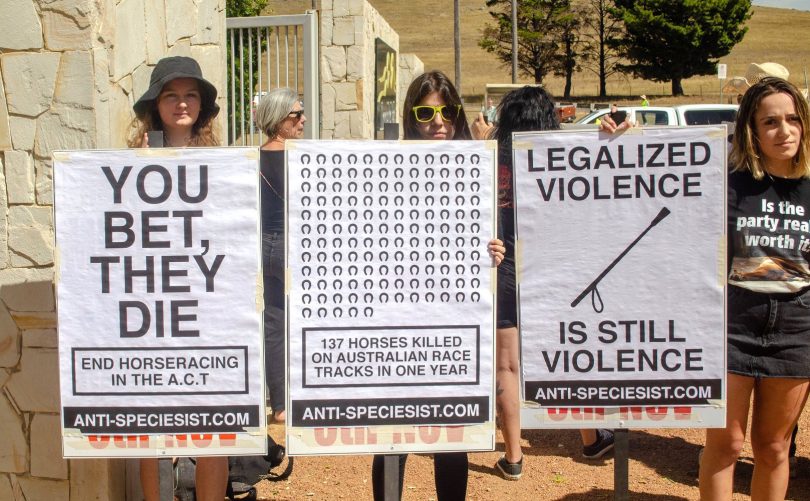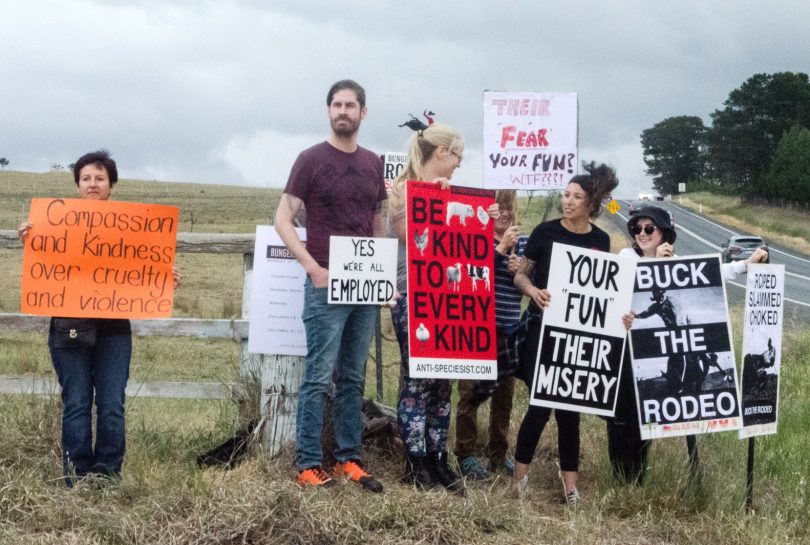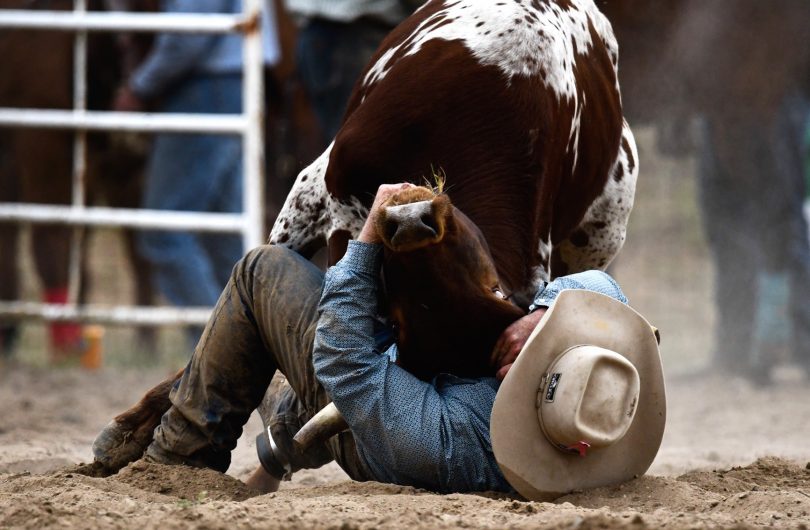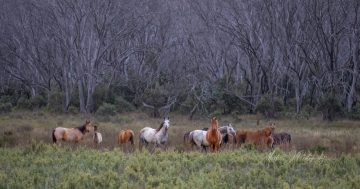
Activists from the Anti-Speciesist Action Collective at Thoroughbred Park earlier this year. Photo: Supplied.
A Canberra-based animal rights group says there is one sure bet for today’s Melbourne Cup: animals involved will suffer at the expense of humans.
Chris Sutevski from the Anti-Speciesist Action Collective told Region Media they will be protesting at Thoroughbred Park in Canberra today, joining groups all across Australia calling for a ban on horse racing.
They will also join activists from Animal Liberation ACT, Vegan ACT and the Animal Justice Party ACT.
Mr Sutevski said they have been buoyed by the attention cruelty in the horse racing industry has been getting in recent weeks, which aligns with their goal of educating the public about animal welfare.
“We’ll be out the front at Thoroughbred Park protesting as people walk in,” Mr Suvetski said. “We aim to challenge speciesism in all its forms through direct action, by elevating and empowering activists and encouraging individuals to become activists.
“We’ll have a petition and a bunch of information about animals being used for entertainment here in the ACT and surrounds. We’ll also be asking people to sign a petition to ban horse racing in the ACT,” Mr Sutevski said.
He said the ACT has been a national leader in progressive animal welfare laws for animals used in entertainment, banning rodeos and exotic animal use in circuses under the Animal Welfare Act 1992, and greyhound racing and trialling in the ACT under the Domestic Animals (Racing Greyhounds) Amendment Act 2017 on 30 April 2018.
While Mr Sutevski concedes that there are a lot of people in the horse racing industry who care deeply about the animals, he said they oppose the racing and exploitation of a fellow sentient being on moral grounds.
“We’re aligned with the Animal Justice Party’s policy of there being a phasing out of horse racing similar to what happened with greyhound racing,” Mr Sutevski said.
“Obviously, we don’t want to see people suffer financially, but we also recognise that the horses are the important factor here. They’re the individuals we’re fighting for here and they’re the individual whose welfare is most at stake here.
“It’s similar in farming where people in those industries have blinders on because they have a vested interest. We acknowledge that, and we don’t think that people who race horses or are in that industry are inherently evil. They are just part of a larger system that pushes them in that direction through either traditions or culture.”
Mr Sutevski is sympathetic with jockeys and trainers whom he says are just doing their jobs.
“We’re not out to attack people. We’re just there to try and educate and show the perspective of the non-human animals. The people in the horse racing industry aren’t the victims here,” he said.

Animal rights activists outside the Bungendore rodeo last Sunday. Photo: Gareth Tudor
The Anti-Speciesist Action Collective also made its presence felt at the Bungendore Rodeo on Sunday.
A small group of about a dozen protesters stood outside in the rain to make their opposition to the event known.
“The Bungendore Rodeo, like all rodeo events, is a display of violence and callousness,” the group said in a statement.
“To see the fear in the eyes of the animals, most of them less than a year old, is to be reminded of the human capacity for cruelty.
“Their performative cruelty in the name of ‘entertainment’ is a sad reflection of broader so-called ‘Australian’ attitudes towards non-humans. The images ensure that the suffering of the unfortunate souls abused for entertainment does not go unnoticed.”

Action from last Sunday’s rodeo at Bungendore that animal activists say should be banned. Photo: Gareth Tudor













